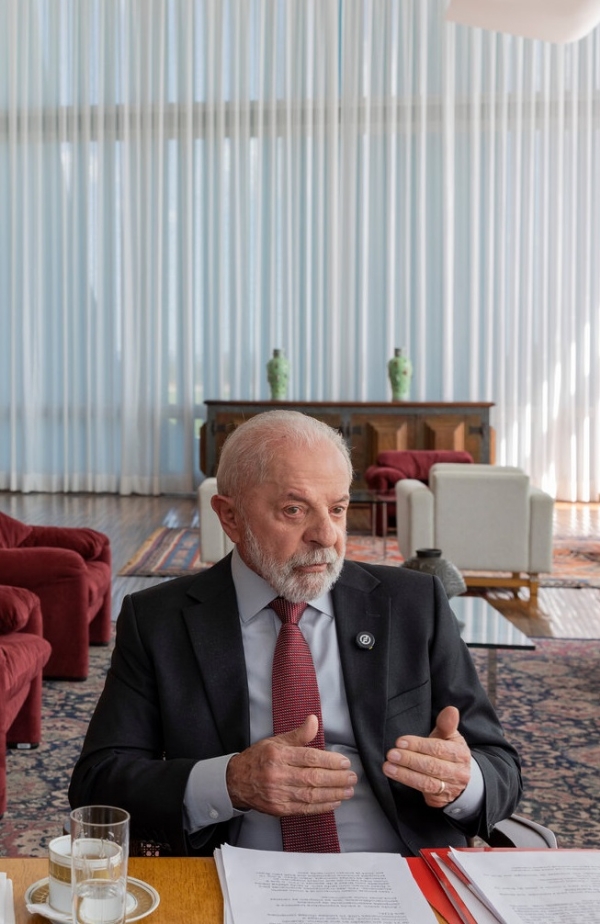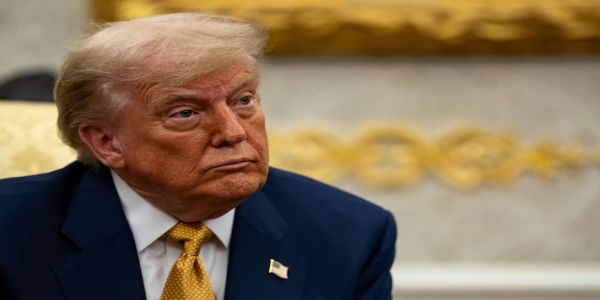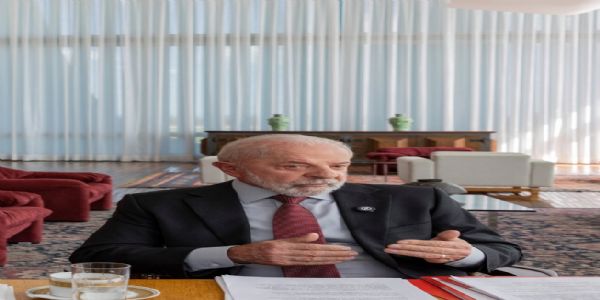
Washington, July 31 (HS): In April, President Trump announced a 10% tariff on Brazilian goods, the lowest base rate for imports from most countries. As the 90-day pause on these tariffs expires, Trump escalates the rate to 50%, potentially igniting a trade war with Brazil, which exports substantial amounts of beef, coffee, and steel to the U.S. This new tariff policy is politically motivated rather than trade-focused.
Despite Trump's claims of a trade deficit with Brazil, the reality is a multimillion-dollar surplus for the U.S., indicating that it sells more to Brazil than it purchases. This tariff increase is seen as retaliation against the judicial actions against Bolsonaro, Trump's ally and former Brazilian President, who faces trial over a coup attempt following his 2022 election loss. Bolsonaro’s supporters had stormed government buildings, and Bolsonaro denies the coup charges, which Trump calls a witch-hunt.
The 50% tariff, one of the highest in the world, is coupled with other sanctions aimed at influencing Brazil's judicial proceedings against Bolsonaro. Eduardo Bolsonaro, Jair's son, has been lobbying U.S. officials, which has further complicated issues. Both Eduardo and Jair are facing legal challenges, including investigations into obstruction of justice and judicial compliance with electronic monitoring.
In response to Trump's tariffs, President Lula has condemned what he views as unacceptable U.S. interference in Brazilian sovereignty and judicial independence, defending his government's actions. Lula remains open to trade negotiations but emphasizes domestic protections for Brazilian workers and industries. Despite his efforts, tension persists as Trump and Lula have yet to communicate directly.
Interestingly, Lula seems to benefit from Trump's tariff threats, garnering domestic support as he confronts the U.S. He has even adopted a symbolic blue cap resembling Trump’s MAGA hat, asserting Brazil's ownership to Brazilians. Analysts suggest that these tariffs could backfire on Bolsonaro, who could potentially alienate key agricultural producers in his support base.
Brazil is significant for the U.S. agricultural market, supplying coffee and orange juice, with the latter being sourced predominantly from Brazil. While certain products are temporarily excluded from the tariff, the impending increase is expected to raise costs for American consumers and strain Brazilian producers, especially in the coffee sector, where the U.S. is Brazil's largest customer.
Producers are preparing for the implications of the 50% tariffs, with Brazilian exporters concerned about their ability to replace lost U.S. markets, particularly given the increase in imports from Brazil by other countries may not fully compensate for the losses.
The future course of action remains uncertain; Brazil may negotiate with the U.S. for a resolution, or tensions could escalate into a mutual trade war. Lula is resolute not to back down, while Trump shows no signs of yielding, exacerbating the standoff between the two nations.
Hindusthan Samachar / Jun Sarkar








